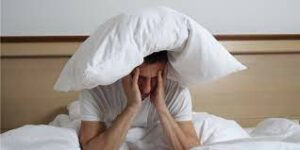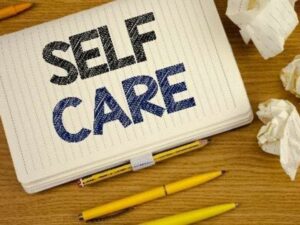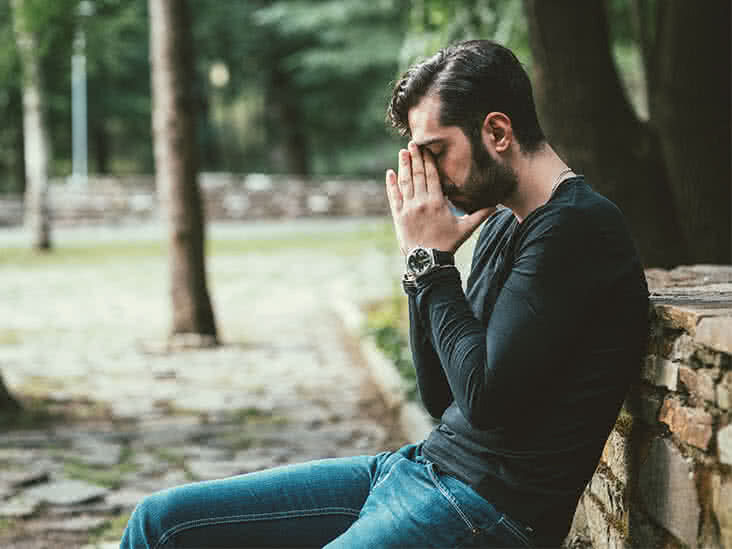Depression is a mental illness that affects people in different ways. For some, it can be difficult to get out of bed in the morning and for others, it can be a challenge to concentrate on anything. There are different types of depression and one type that can be particularly challenging to deal with is agitated depression. In this blog post, we will discuss what agitated depression is, its symptoms, and how it is treated.
Contents
What Is Agitated Depression?
 Agitated depression is a subtype of major depressive disorder (MDD) characterized by restlessness and anxiety. People with agitated depression may also have insomnia, lose interest in activities they once enjoyed, and experience changes in appetite.
Agitated depression is a subtype of major depressive disorder (MDD) characterized by restlessness and anxiety. People with agitated depression may also have insomnia, lose interest in activities they once enjoyed, and experience changes in appetite.
Agitated depression is often misdiagnosed as anxiety disorders or bipolar disorder. The reason is that the symptoms of agitated depression can overlap with other conditions.
The key difference between anxiety disorders and agitated depression is that people with anxiety disorders experience fear or worry that is out of proportion to the situation. For example, a person with an anxiety disorder may have a panic attack when faced with a small challenge, such as public speaking.
Moreover, agitated depression is described as a negative mood state that is accompanied by restlessness and anxiety. This condition can be difficult to deal with and significantly interfere with a person’s daily life.
What Are The Symptoms of Agitated Depression?
The symptoms of agitated depression can vary from person to person. However, common symptoms include:
- Restlessness or feeling keyed up
- Fatigue or low energy
- Difficulty concentrating
- Irritability
- Muscle tension
- Sleep disturbances (insomnia or hypersomnia)
- Increased appetite or weight gain
- Feelings of hopelessness, worthlessness, and/or guilt
Moreover, the signs of agitated depression can differ depending on a person’s age. For example, older adults with this condition may be more likely to experience physical symptoms, such as aches and pains. They may also be more likely to withdraw from friends and activities.
In children and teens, the signs of agitated depression may be different from those in adults. Children and teens with this condition may:
- Complain of stomachaches and headaches
- Have trouble sleeping
- Lose interest in friends and activities
- Have low self-esteem
- Miss school or have lower grades
- Seem angry, irritable, or aggressive
So, the symptoms are really different depending on the person’s age. If you think you or someone you know may have agitated depression, it’s important to seek help from a mental health professional. It is really important to get help and not let the condition progress.
What Causes Agitated Depression?
 There are many potential causes of agitated depression. It may be caused by a combination of genetic, biological, psychological, and environmental factors. Let’s discuss each of these briefly.
There are many potential causes of agitated depression. It may be caused by a combination of genetic, biological, psychological, and environmental factors. Let’s discuss each of these briefly.
Genetic factors
Agitated depression may be more common in people who have a family history of mood disorders. This suggests that there may be a genetic predisposition for the condition. More often, genetic factors are thought to play a role in the development of the bipolar disorder, which can include periods of both depression and mania. For example, if a parent has bipolar disorder, their child has a greater chance of developing the condition.
Biological factors
There are several biological factors that may contribute to agitated depression. These include:
- Changes in brain chemistry
- Hormones
- Neurotransmitters
For example, people with depressed moods often have lower levels of the neurotransmitter serotonin. This chemical is responsible for regulating mood, sleep, and appetite.
Psychological factors
This is often seen as a comorbidity with other mental disorders such as:
These mental disorders can play a role in agitated depression and make it more difficult to treat. There are also some physical factors that can contribute to agitated depression. This includes:
- Chronic pain
- Sleep disorders
- Thyroid problems
These psychological factors are often the cause of agitated depression. If you are suffering from any of these disorders, it is important to seek treatment.
Environmental factors
 It is believed that agitated depression may be caused in part by certain environmental factors. These include:
It is believed that agitated depression may be caused in part by certain environmental factors. These include:
These factors are thought to contribute to the development of agitated depression by making the individual more susceptible to experiencing negative emotions. Moreover, it is thought that these environmental factors can lead to changes in brain function and structure which may make the individual more likely to experience depression.
Therefore, it is important to recognize the causes of agitated depression in order to provide proper treatment. And you should remember that agitated depression is not your fault. If you are experiencing any of the symptoms of agitated depression, it is important to seek professional help.
How Does It Impact Life?
It is believed that agitated depression affects women more often than men and that it begins in early adulthood. Agitated depression can actually impact life in a number of ways. Some of the negative impacts that agitated depression causes in life include:
Decreased work performance
This is one of the more common impacts that agitated depression has in life. It can cause a person to not be able to focus at work, which leads to decreased productivity. In some cases, it may even lead to job loss. For example, if you are a cashier and have to deal with customers, but you are too depressed to focus on your job, you may get fired.
Another common impact of agitated depression is decreased social interaction. This can happen for a number of reasons. For example, a person may not want to go out and interact with people because they are too depressed. Or, a person may not be able to focus when they are around other people, which can lead to social awkwardness.
Problems with relationships
When agitated depression is present, people may have problems with their relationships. They may withdraw from others and not want to participate in activities that they used to enjoy. They may be irritable and short-tempered. Agitated depression can make it hard to concentrate, which can lead to problems at work or school.
Difficulty sleeping
 It is another negative impact of agitated depression that can make it hard to focus and be productive during the day. When someone is unable to get a good night’s sleep, they may find themselves struggling to concentrate or pay attention. This can lead to problems at work or school and make it difficult to complete tasks. Difficulty sleeping can also cause irritability, which can exacerbate symptoms of agitated depression.
It is another negative impact of agitated depression that can make it hard to focus and be productive during the day. When someone is unable to get a good night’s sleep, they may find themselves struggling to concentrate or pay attention. This can lead to problems at work or school and make it difficult to complete tasks. Difficulty sleeping can also cause irritability, which can exacerbate symptoms of agitated depression.
Physical problems
When you are mentally and emotionally exhausted, your body can also start to experience physical problems. This can include:
- headaches
- stomachaches
- general fatigue
- low sex drive
- joint aches and body aches
You may also find yourself getting sick more often. Because your immune system is weakened. If you are experiencing any of these physical symptoms, it is important to seek medical help.
Withdrawal from friends and family
This is something that can happen gradually or suddenly. People with agitated depression may start to withdraw from social activities and pull away from friends and family members. They may stop attending events, avoid phone calls, and cancel plans. This can be a way of coping with the negative emotions they are feeling but it can also make symptoms worse. Isolation can lead to feelings of loneliness and despair.
It is important to seek help if you are experiencing symptoms of agitated depression. Treatment can help improve your mood and quality of life. There are a number of different treatment options available, you just need to start by reaching out for help.
How To Treat Agitated Depression?
It is really essential to find ways to soothe yourself when you are feeling agitated. There are various treatment options that you can explore to help ease your symptoms. Some of the options are listed below:
Psychotherapy
Therapy is believed to be one of the most effective treatments for agitated depression. It can help you understand your condition better and give you the tools to cope with your symptoms. It is also known as ‘talk therapy’ and can be done in individual or group settings.
Cognitive-behavioral therapy (CBT) is a type of psychotherapy that is often used to treat depression. It focuses on changing negative thinking patterns and behaviors.
Interpersonal therapy (IPT) is another type of psychotherapy that can be used to treat depression. It focuses on your relationships with others and how they may be affecting your mood.
These are the most commonly used therapy methods, however, there are many other types of therapies that can be used to treat agitated depression.
Medication
 There are various types of medication that can be used to treat agitated depression. Antidepressants are the most commonly prescribed type of medication. They work by increasing levels of certain chemicals in the brain, which can help improve mood. Some of the commonly prescribed medications are:
There are various types of medication that can be used to treat agitated depression. Antidepressants are the most commonly prescribed type of medication. They work by increasing levels of certain chemicals in the brain, which can help improve mood. Some of the commonly prescribed medications are:
- Fluoxetine (Prozac)
- Paroxetine (Paxil)
- Sertraline (Zoloft)
- Amitriptyline (Elavil)
- Imipramine (Tofranil)
In addition to antidepressants, other medications may be prescribed. For example, anti-anxiety medications, mood stabilizers, and antipsychotic medications. It’s important to work with a mental health professional to find the right medication.
You need to discuss the risks and benefits of each type of medication to make sure it’s the right fit for you.
Acupressure
This is a form of touch therapy that uses pressure on points around your body. It is said to help with relaxation and healing. In fact, it has been shown to be helpful in reducing anxiety and depression. It works through the nervous system to help the body relax.
A professional will use both hands to apply pressure to the person’s back, neck, and head. The therapist will also use different strokes and speeds to find the right amount of pressure for each person. It is important to find a qualified therapist who has experience in treating anxiety and depression.
Acupuncture
 This is a form of Chinese medicine that involves inserting thin needles into your skin at specific points. It is said to help with a variety of conditions. Such as pain, nausea, and depression. A review of studies found that acupuncture may be helpful in treating mild to moderate depression.
This is a form of Chinese medicine that involves inserting thin needles into your skin at specific points. It is said to help with a variety of conditions. Such as pain, nausea, and depression. A review of studies found that acupuncture may be helpful in treating mild to moderate depression.
It is basically a form of energy medicine. The therapist will insert the needles and then leave them in for a short period of time. Some people feel a tingling sensation, while others feel nothing at all. It helps in depression with the release of chemicals in the brain.
Aromatherapy
This is a therapy that uses essential oils to promote relaxation and healing. Aromatherapy is a great way to reduce stress and anxiety, and it can also help to improve sleep quality. There are a few different ways to use essential oils for aromatherapy.
One way is to add a few drops of oil to a diffuser, which will disperse the fragrance into the air. Alternatively, you can add a few drops of oil to a bathtub full of warm water, or you can make your own massage oil by mixing the oil with a carrier oil such as jojoba or almond oil.
Look for oils that are 100% pure and free from any synthetic ingredients. Some good essential oils for treating depression include:
- Lavender
- Chamomile
- Ylang-ylang
You can also try a mixture of different oils to find one that works best for you. Start with a small amount of oil and increase the amount gradually until you find a concentration that is effective for you.
Self-help strategies
 It is believed that agitated depression demands more action than regular depression. This may be due to the feeling of being overwhelmed and hopeless that is associated with this type of depression. While medication and therapy are typically recommended treatments. But there are also some self-help strategies that may help lessen symptoms.
It is believed that agitated depression demands more action than regular depression. This may be due to the feeling of being overwhelmed and hopeless that is associated with this type of depression. While medication and therapy are typically recommended treatments. But there are also some self-help strategies that may help lessen symptoms.
Some self-help strategies for agitated depression include:
- Exercise: Exercise has a plethora of benefits, both mental and physical. It can help to ease anxiety and improve mood.
- Talk to friends and family: Talking to loved ones about how you’re feeling can help you feel supported and less alone.
- Eat healthily: Eating nutritious foods helps the body to function properly and can boost energy levels and mood.
- Get enough sleep: Sleep is essential for overall health and can help to improve mood and energy levels.
- Avoid drugs and alcohol: Substance abuse can worsen symptoms of depression and should be avoided.
If you or someone you know is struggling with agitated depression, it’s important to seek professional help. This type of depression can be debilitating and treatment is essential. With the proper help, however, recovery is possible.
So, these are some treatment options that can help you to deal with agitated depression. If you think that you are suffering from this kind of depression, then please consult a mental health professional as soon as possible. Take care!
Conclusion
To conclude, agitated depression is simply defined as a state of depression where the individual experiences agitation or restlessness. While it may seem like a small difference, this can be a debilitating symptom for many people. If you or someone you know is struggling with agitated depression, there are treatment options available.
For more information, please contact MantraCare. Depression is a mental illness characterized by persistent feelings of sadness, hopelessness, and loss of interest in daily activities. If you have any queries regarding Online Depression Counseling experienced therapists at MantraCare can help: Book a trial Depression Therapy session


